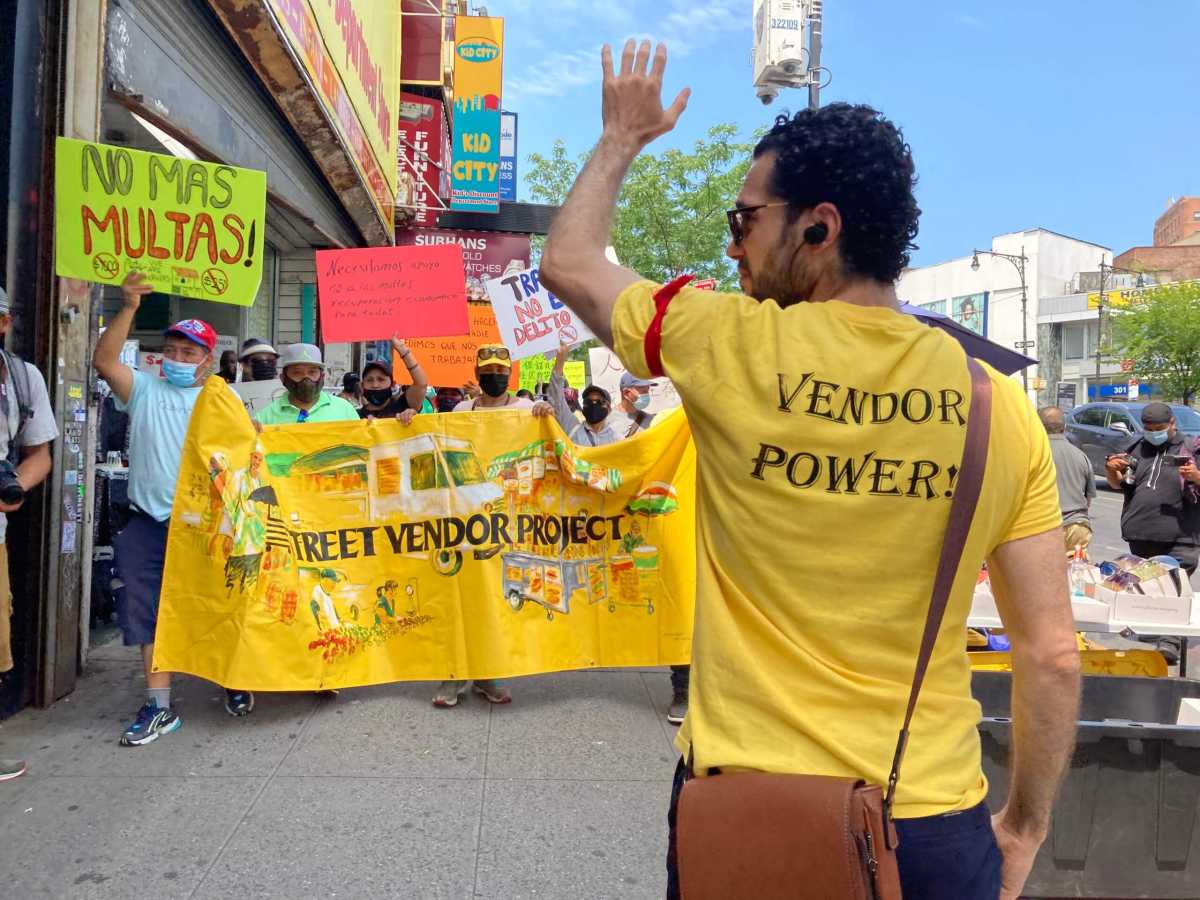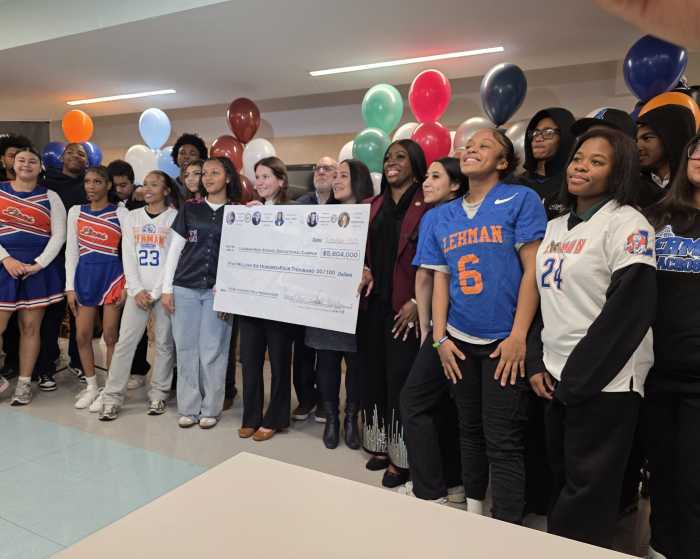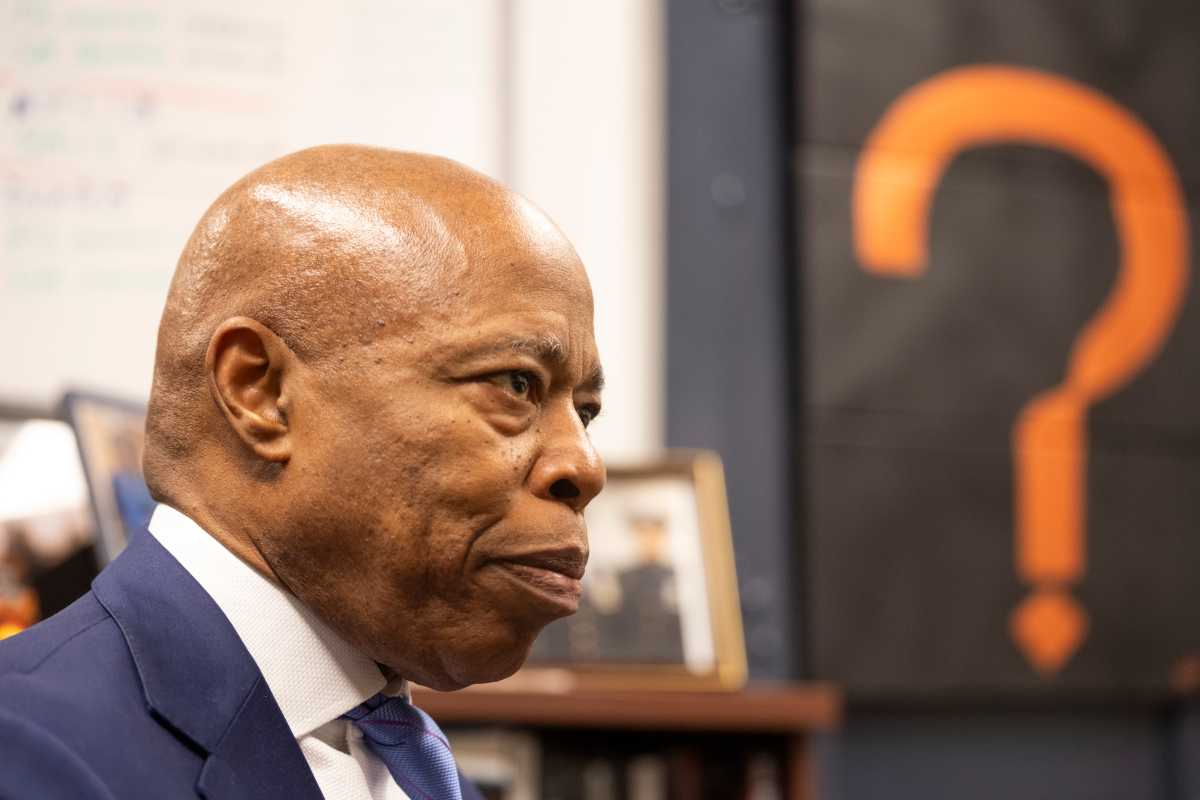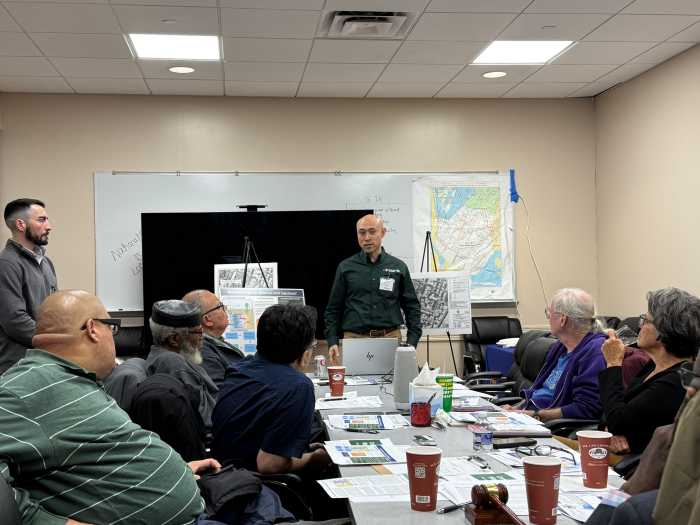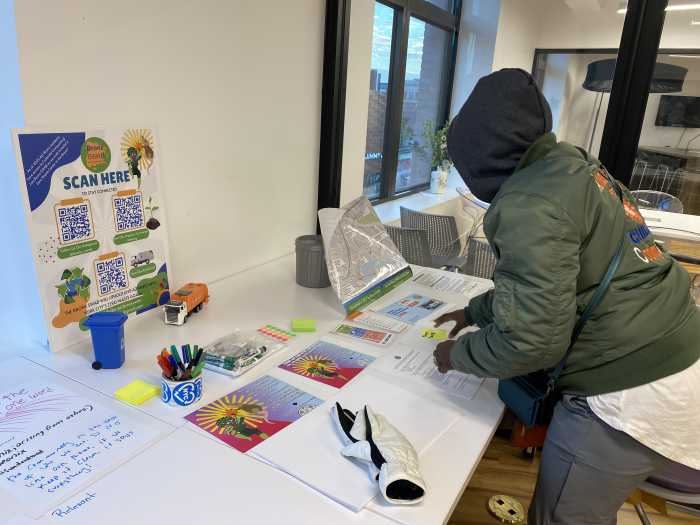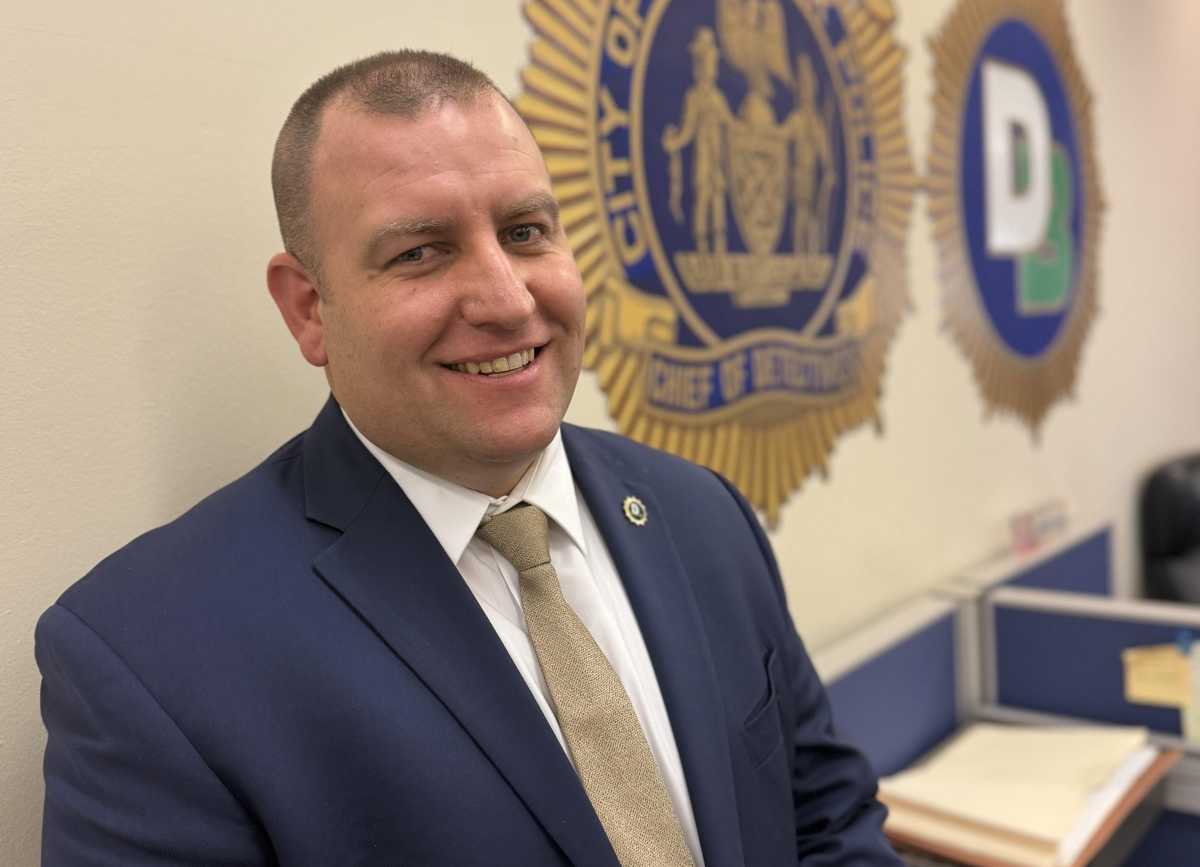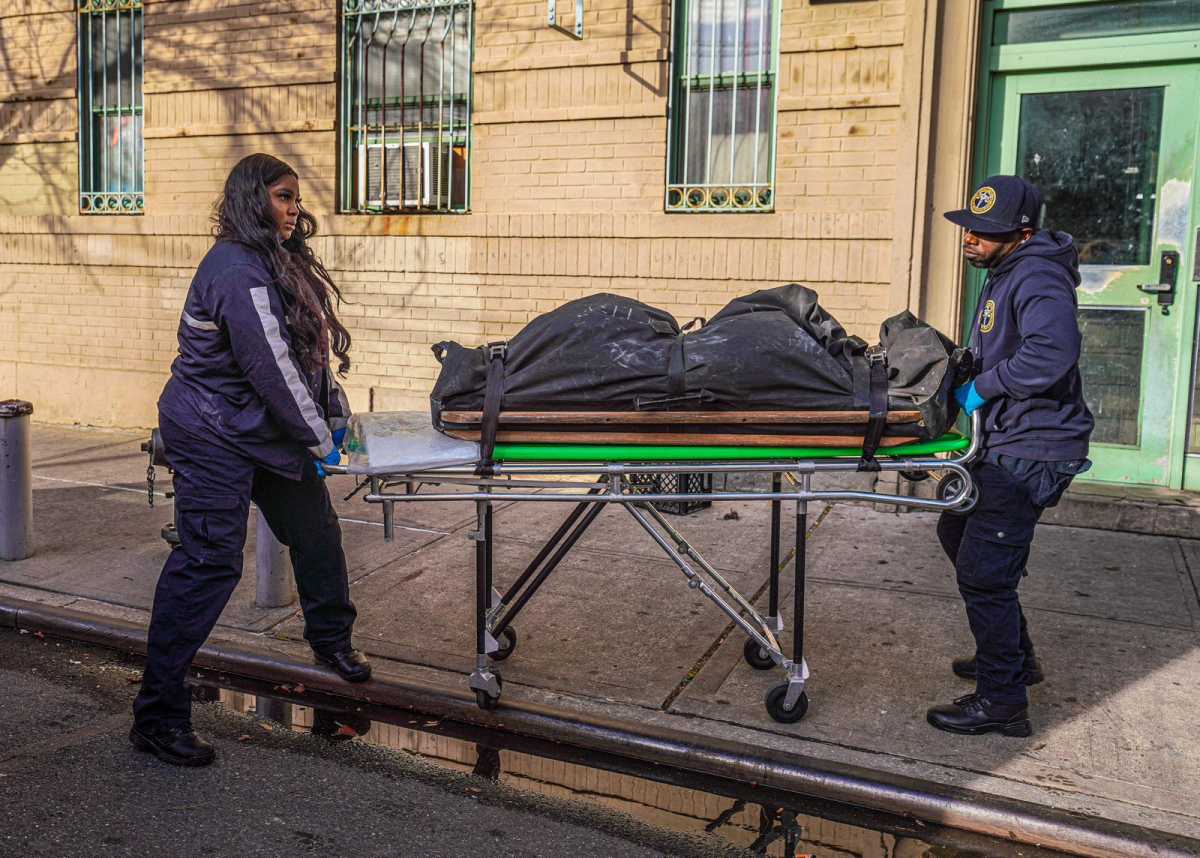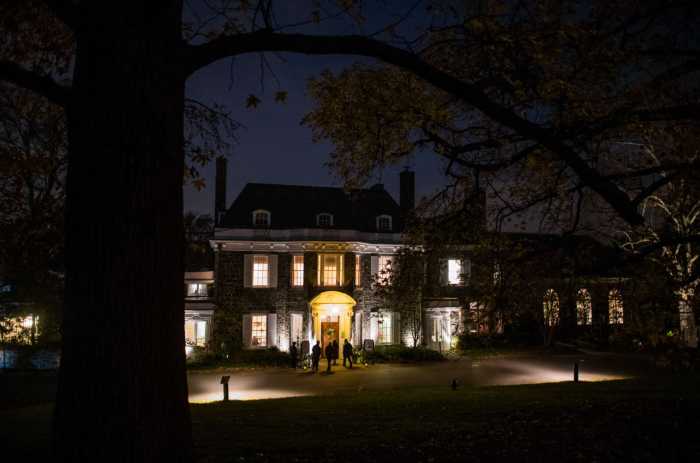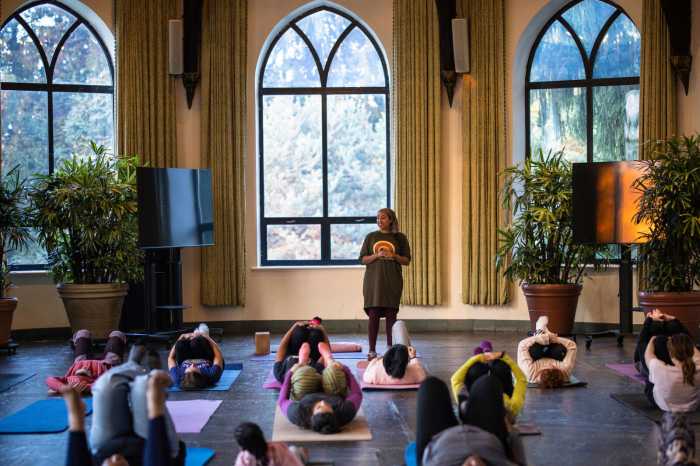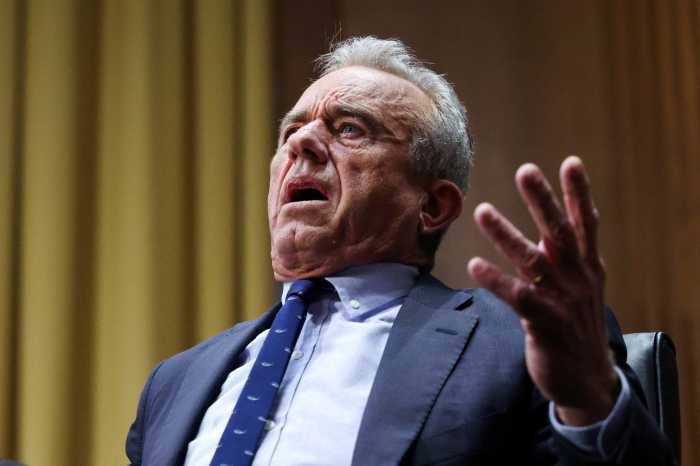Through rally cries of “Vendors United!” roughly 40 New York City street vendors marched down Fordham Road on Thursday, calling on city officials to legitimize a workforce of as much as 20,000 by eliminating a cap on permits and licenses.
Additionally, street vendors and their advocates are also calling on the city to place a moratorium on fines that reach up to $1,000 toward unpermitted mobile food vendors as part of NYC’s reopening.
Carina Kaufman-Gutierrez, the deputy director for the Street Vendor Project, said Senate Bill 1175A which would legalize and decriminalize sidewalk vending statewide is a long-term solution that would provide a pathway to business creation for a workforce that primarily includes undocumented workers, military veterans and women of color.
“For many, street vending is their only option — some who are undocumented workers or single parents — it’s a really important business because it allows for autonomy and ownership of their business,” she said. “It’s a pathway to being a small-business owner that can provide stability.”
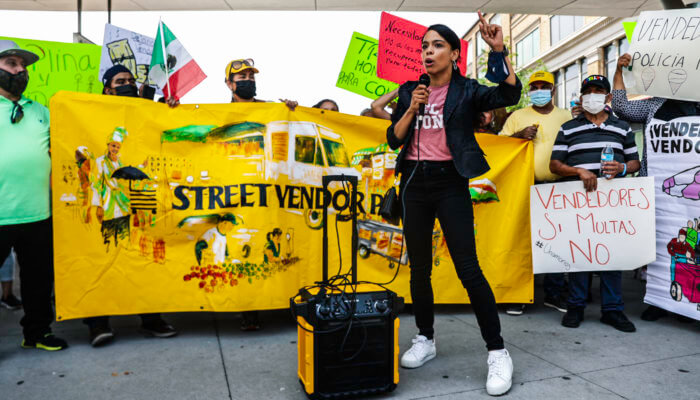
If passed by the state Senate, the bill, which is currently in committee and sponsored by Democratic state Sens. Jessica Ramos and Jessica Gonzales-Rojas, would be another win in a series of legislative victories for vendors dating back to December 2020.
In December, Mayor Bill DeBlasio, a Democrat, announced that, on Jan. 15, the NYPD would no longer oversee street vendors in the city, adjudicating that responsibility to the city’s Department of Consumer and Worker Protection.
Kaufman-Gutierrez said that before the change in enforcement, unpermitted street vendors were often subjected to a culture of over-ticketing and over-policing by the NYPD. In addition to the $1,000 fines for lacking city-issued permits, vendors can also accrue fines of $250 for unlicensed merchandise vending.
Another victory came in January when the New York City Council passed Intro 1116, a measure that increased the city’s vendor permit cap by 4,000 permits.
It had been the first time since the 1980s that the cap had been increased.
Starting in 2022, roughly 400 vendor permits will be issued annually over the next decade. The law also creates a vendor advisory committee and requires a “supervisory licensee” to be present at food carts and trucks starting in 2032 to avoid absentee permit owners.
But street vendors want action now.
While the new law bumps up the existing citywide cap of 2,900 full-time street vendor permits and 5,100 total permits — including part-time additional permits — it hardly covers a workforce of up to 20,000 street vendors statewide, advocates say.
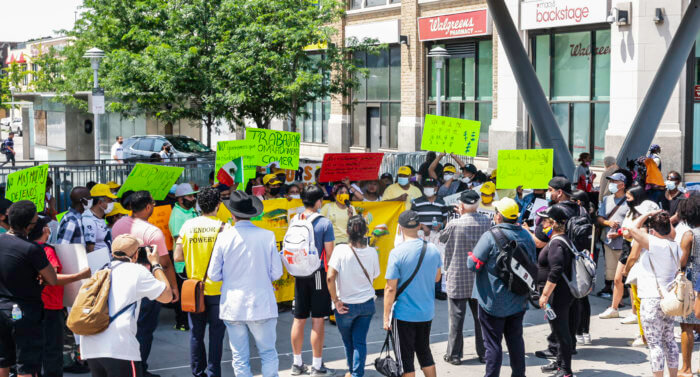
Out of the 400 yearly permits, 300 of those permits will be reserved for street vendors in Manhattan.
Mobile street vendors were declared essential workers during the pandemic by Democratic Gov. Andrew Cuomo, but some didn’t see a dime of federal stimulus money, with immigrants who are in the U.S. illegally ineligible for federal Paycheck Protection Program loans and excluded from stimulus checks and unemployment insurance.
It didn’t help that street vending was gutted during the early months of the pandemic when NYC was in the throes of an economic shutdown.
A January 2021 report by Women in Informal Employment Organizing showed that 98% of the 63 street vendors surveyed, many of whom are food vendors, had no earnings in April 2020.
By April 2020, according to the same report, 100% of respondents had stopped working in that same month. By June, only 26% were working part-time or more.
“There is a barrier of entry that is so steep for street vendors to be able to be seen as legitimate small businesses, even though they are essential to the fabric of New York City,” said Kaufman-Gutierrez. “Street vendors who were considered essential during the pandemic, and many who became street vendors to stay afloat during the pandemic, are being denied and hit with extraordinary fines.”
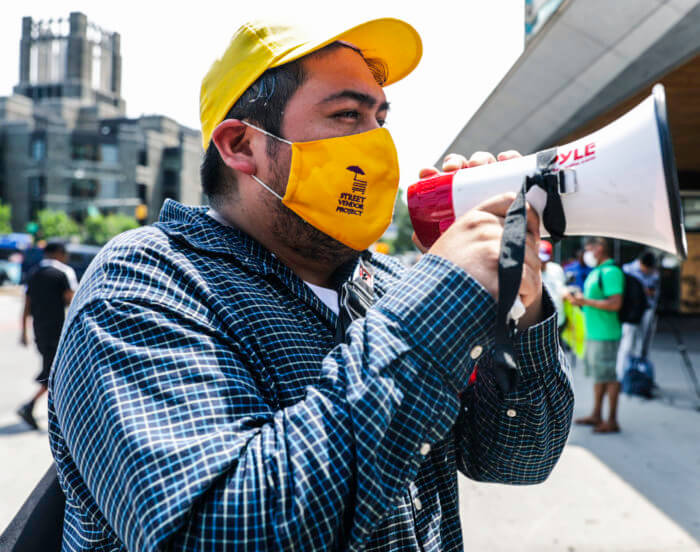
Lucio, who lives in the U.S. without legal permission and didn’t want to provide his last name because of his immigration status, said that when he lost his job as a restaurant worker during the pandemic, his work as a street vendor selling tacos on Fordham Road was a means of making money and finding stability.
However, because he was an unpermitted vendor, he was levied three rounds of fines totaling $2,050.
“After having the [street vendor taco] business I learned about the regulations but the offices were closed and I could not get a license, ” Lucio said through a translator. “They recently gave me three tickets, one of the fines was for not having a license. We are still in the pandemic and we do not know when recovery is coming, and we have not received help from the government.”
While momentum for S1175A continues to grow — including calls to legalize street vending and erase two years of fines against unpermitted vendors in the city from Democrat state lawmakers Assemblyman Kenneth Burgos and Sen. Alessandra Biaggi — business leaders like Wilma Alonso, executive director of the Fordham Road Business Improvement District, are opposed to it.
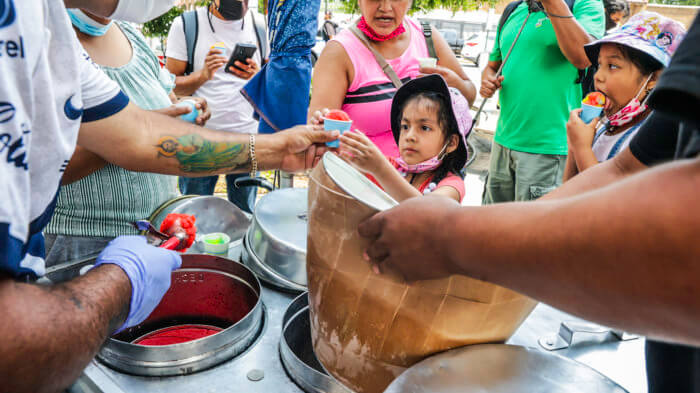
Alonso told the Bronx Times that she’s not “anti-vendor.” She, however, did express concerns that without restriction and regulations, unchecked vendors could turn places like Fordham into a “wild, wild west” of competing interests.
“Even before the pandemic, we saw an overcrowding and lack of regulation with street vendors on Fordham Road, and during the pandemic, it really increased even as we tried to social distance,” said Alonso. “It’s hard to understand how someone can be doing business if they are unlicensed, and thus unregulated when many legitimate Fordham Road businesses have a different set of rules they need to abide by.”
Alonso isn’t alone in those concerns.
Dani Padilla, a licensed street vendor, said she is concerned that without a cap on who or how many vendors can get licensed, there could be a glut of vendors struggling to make money.
“There are rules for a reason and many street vendors during the pandemic didn’t respect the time and energy it took for some of us to get permitted to sell what we want,” Padilla said. “Should 20,000 people be allowed to be vendors? ‘No.’ Because how can 20,000 vendors all make money when we’re going to be selling the same stuff.”
___________________________________________________________________________________
Reach Robbie Sequeira at rsequeira@schnepsmedia.com or (718) 260-4599. For more coverage, follow us on Twitter @bronxtimes and Facebook @bxtimes.

